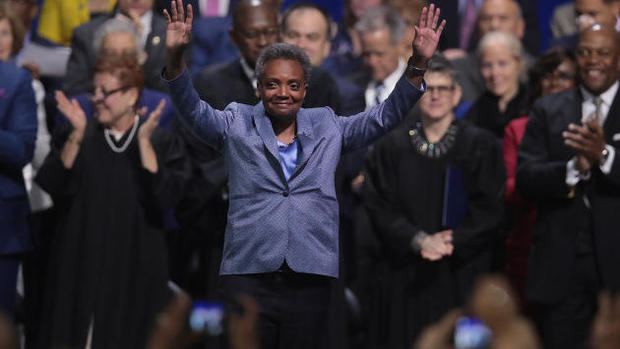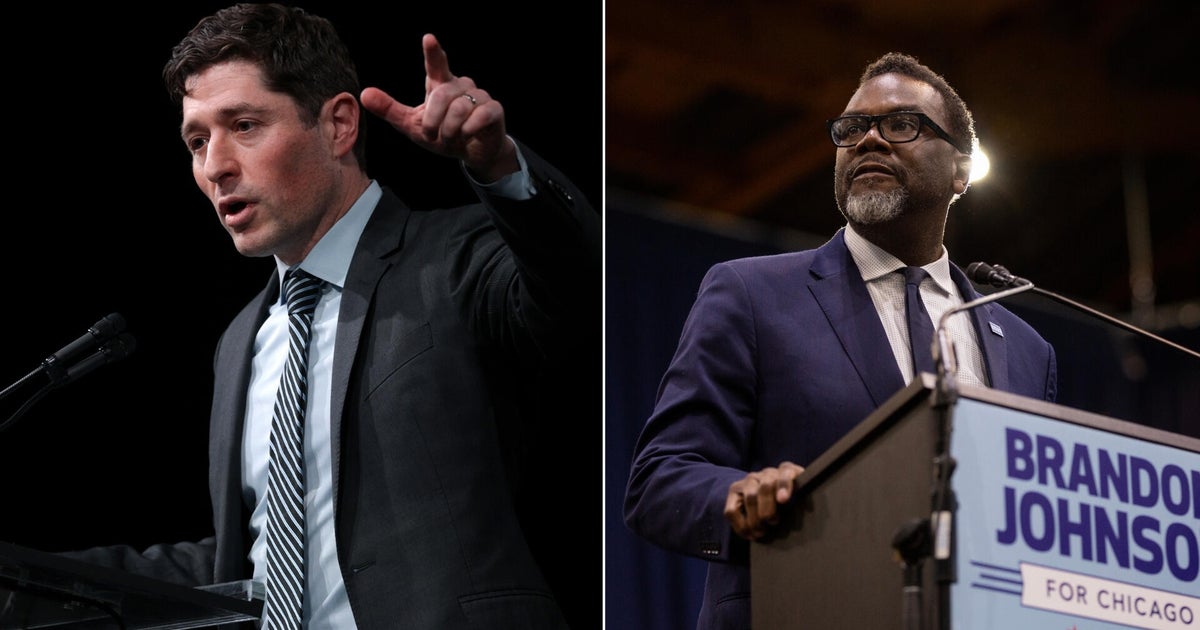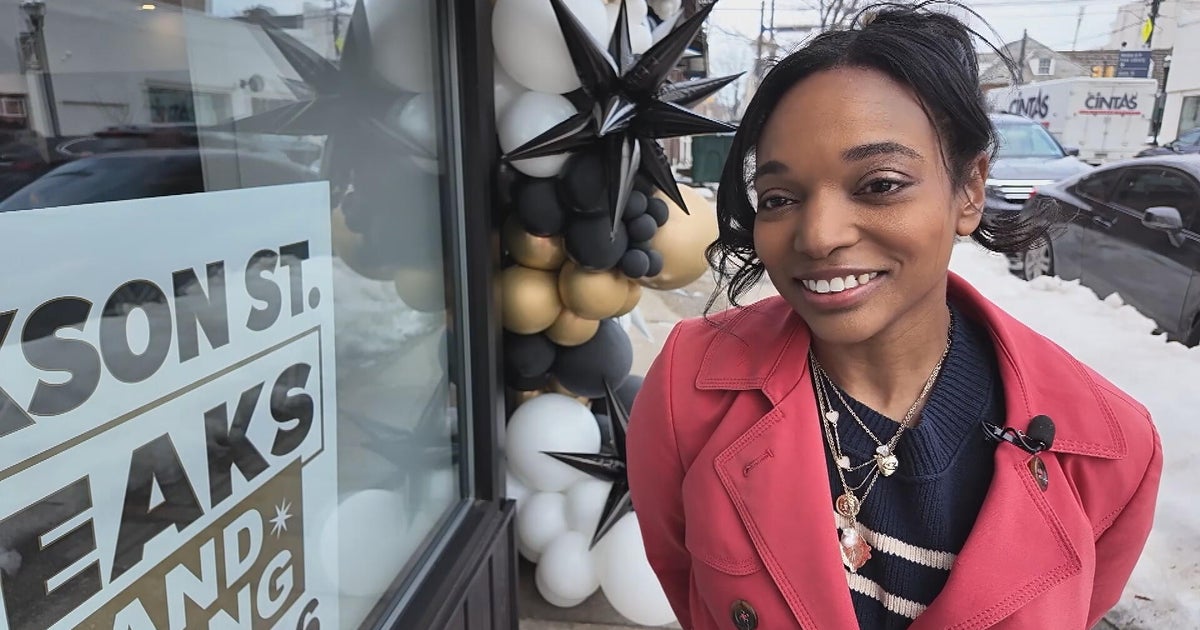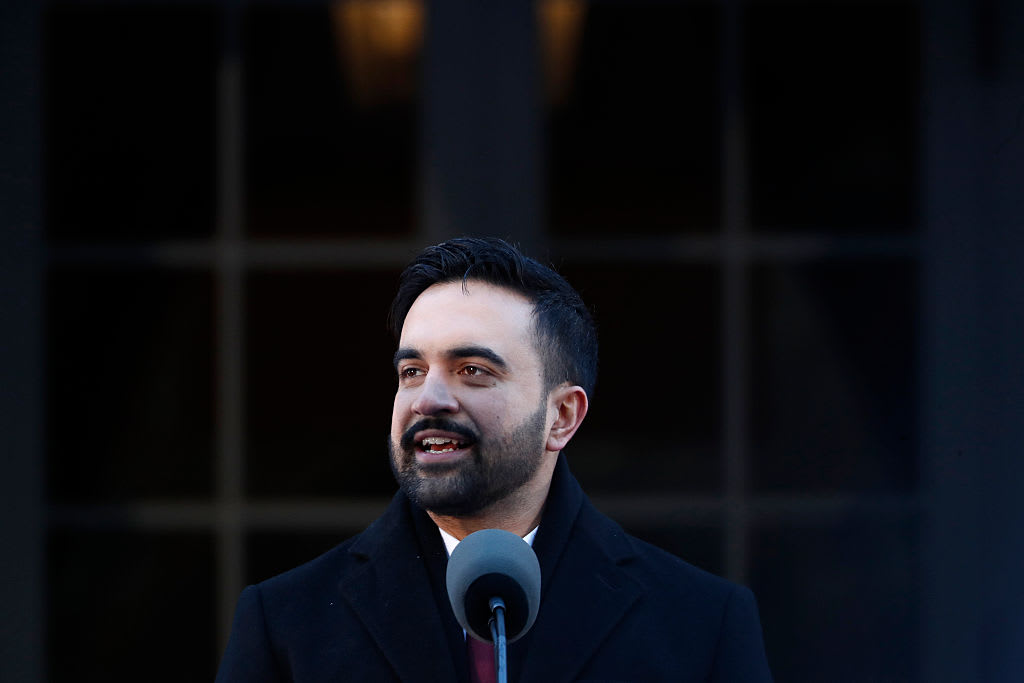"Reform is here": Lori Lightfoot sworn in as Chicago mayor, pledges change
Lori Lightfoot was sworn in Monday as mayor of Chicago, becoming the first black female and openly gay mayor in the city's history. Lightfoot, who was inaugurated at Chicago's Wintrust Arena with her wife and daughter at her side, addressed the city's violence problem in her inaugural speech. She announced the creation of a Mayor's Office of Public Safety as part of her strategy.
Lightfoot waved to the crowd after taking the oath of office Monday, then opened her remarks by calling Chicago "a proud city with a proud history" that she considers a "city of hope." Along with safety improvements, Lightfoot pledged to strengthen the city's education system and financial stability, and to improve public integrity by rooting out corruption.
"I know, I know, putting Chicago government and integrity in the same sentence is — well — a little strange," Lightfoot joked. "But that's going to change. It's got to change. For years, they've said Chicago ain't ready for reform. Well, get ready — because reform is here."
Lightfoot said she has "no higher calling" than restoring safety and peace in Chicago's neighborhoods. Chicago police report there were 561 homicides in the city last year —100 fewer than in 2017 still but more than the total number of homicides in New York and Los Angeles combined.
"People cannot — and should not — live in neighborhoods that resemble a war zone," Lightfoot said. "Enough of the shootings. Enough of the guns. Enough of the violence."
Lightfoot also said public safety "must not be a commodity that is only available to the wealthy."
She vowed to develop a new proactive strategy to fight crime in neighborhoods hit hardest by gun violence, reports CBS Chicago. Lightfoot said the new office of public safety would be led by a deputy mayor charged with coordinating a unified violence prevention strategy that brings in not only police but also city government, schools, non-profits, businesses, and the faith community.
Lightfoot, a former prosecutor who chaired the city's police accountability task force in the wake of the 2014 police shooting of black teenager Laquan McDonald, has long been a champion of community policing. In a 2016 interview with CBS News, she said the relationship between the police department and communities in Chicago, particularly communities of color, was "broken" and "fractured."
"We will also continue the hard but essential work of forging partnerships between police officers and the community premised on mutual respect, accountability and a recognition that the destinies of police and community are inextricably intertwined," Lightfoot said in prepared remarks Monday. "One simply cannot succeed without the other."
Lightfoot isn't the first incoming mayor who's come into office pledging to overhaul the city's police force, but she may be the one with the best chance of actually getting it done. One reason is that she'll have a federal judge as an ally: U.S. District Judge Robert Dow recently approved a court-monitored police reform plan. He has the power to hold reform slackers in contempt.
Lightfoot, elected in an April runoff against Cook County Board President Toni Preckwinkle, signaled days before her inauguration that she's serious about transforming the 13,000-officer force by appointing top staffers with histories as strong police-reform advocates.
But even with court backing, Lightfoot faces obstacles to enacting the meaningful changes that protesters sought after the 2015 release of video of a white officer shooting McDonald 16 times. The police union has been hostile to key provisions of the plan, arguing that many will make it impossible for officers to do their jobs right. One requirement that the union singles out for criticism — and that Lightfoot has heralded — is that officers document each time they point their weapons at someone, even if they don't shoot. The union says it will cause police to hesitate, potentially putting them at risk.
"I believe she's a true reformer," Phil Turner, who like Lightfoot is a former federal prosecutor in Chicago, told the Associated Press. "But there's a difference between trying to reform police and reality. She is up against a lot of enrichened forces."
The plan that Dow approved in January was a culmination of the scandal surrounding McDonald's death and came after a Justice Department investigation concluded that racial bias and poor training contributed to a pattern of abuse by police. Illinois' attorney general sued the city to force the court's supervision after years of inaction by the City Council, which dealt with systemic police misconduct in recent years by approving millions of dollars in lawsuit settlements.
Lightfoot also said Monday that one of her first actions as Chicago mayor will be to sign an executive order limiting the powers aldermen have in their wards. Lightfoot said the new executive order will end aldermen's "unilateral unchecked control" over their wards. She says, "aldermen will have a voice, but not a veto" and that the "requirement that people must give more to access basic city services must end."




